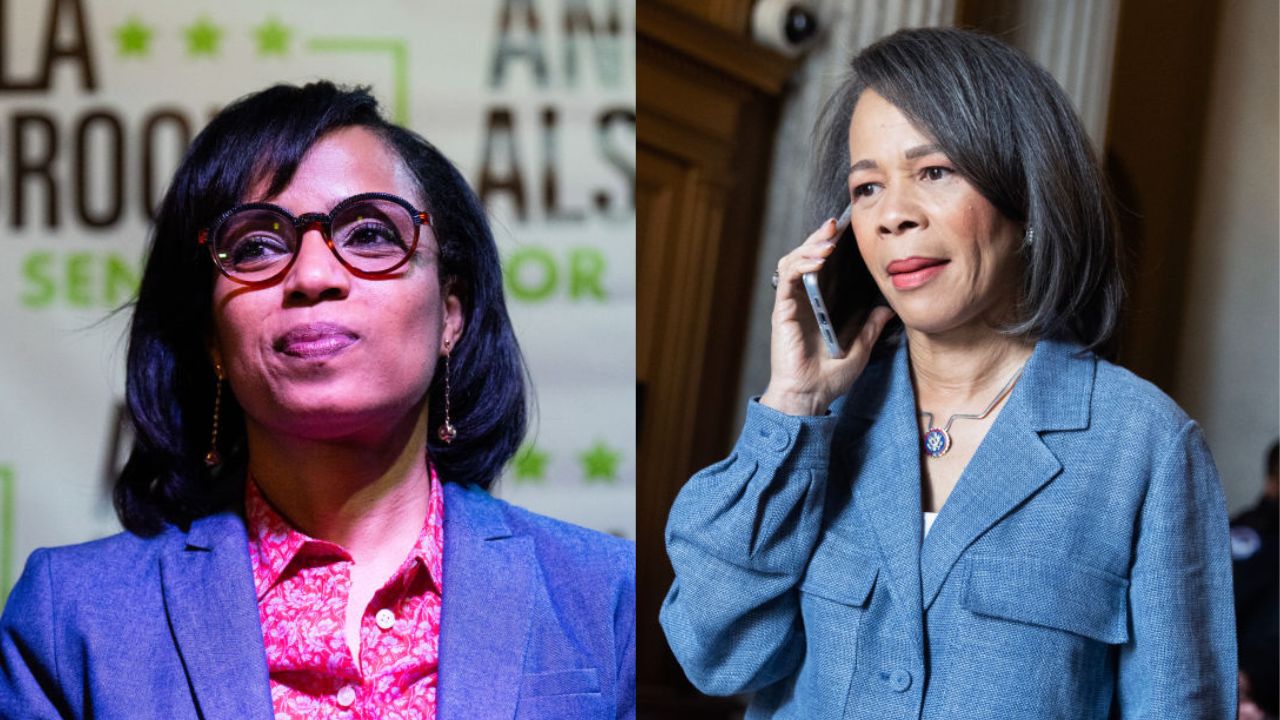With the 2024 election being a pivotal vote for the country’s direction on various issues, one overlooked aspect of this political cycle is the chance for history to be made in terms of representation. Specifically, November could see the election of two Black women senators, which would double the number of Black women that have ever been elected to the U.S. Senate.
Alsobrooks favored to win Maryland race for Senate
As Blavity reported, Angela Alsobrooks achieved a solid victory in the Maryland Democratic primary against Rep. David Trone despite Trone spending over $60 million to fund his campaign. Now, Alsobrooks faces former Gov. Larry Hogan, a popular moderate Republican, in November’s general election. While this will likely be a tough race, Maryland is heavily Democratic, making Alsobrooks the favorite to win. Alsobrooks recently tweeted that, if elected to the Senate, among her priorities, “I will vote to codify abortion rights. I will vote to ban the sale of assault weapons. I will vote to abolish the filibuster.”
As Maryland's next Senator, I will not let the filibuster impede my work.
I will vote to codify abortion rights.
I will vote to ban the sale of assault weapons.
I will vote to abolish the filibuster.
— Angela Alsobrooks (@AlsobrooksForMD) May 28, 2024
Blunt Rochester a heavy favorite in Delaware
In her quest to become the next Black woman elected to the Senate, Alsobrooks is joined by Delaware Rep. Lisa Blunt Rochester. Blavity reported Blunt Rochester announced her bid to run for U.S. Senate in June. Having represented Delaware since 2017 as the state’s only U.S. representative, Blunt Rochester has been seen as the favorite to win the state’s Democratic primary in September. That victory would make her the heavy favorite in President Joe Biden’s heavily Democratic home state. In a recent interview with MSNBC’s Katie Phang, Blunt Rochester discussed her excitement for the opportunity to join the Senate and work to protect reproductive freedom and democracy.
Our movement is all about building a stronger economy, protecting our freedoms, and safeguarding our environment — for all Americans.
Thanks to @KatiePhang for having me on to talk about the stakes of our Senate race in Delaware. pic.twitter.com/FSJQWeE4QE
— Lisa Blunt Rochester (@LisaBRochester) May 28, 2024
Democratic Party support, often lacking, is strong for both women
Alsobrooks and Blunt Rochester have succeeded partly by winning support from the larger Democratic establishment, gaining critical endorsements from prominent Democrats in their respective states and national party figures. After being defeated by Alsobrooks, Trone gave her his endorsement, which the party hopes will lead to him contributing financially to her election as he did to his own. Blunt Rochester, meanwhile, is a co-chair of the Biden-Harris reelection campaign, giving her strong support from the administration. This support comes in contrast to major Black women candidates in past elections who have often been ignored by the Democratic Party, which helps explain why there have only been two elected Black female senators — Carol Moseley Braun and Kamala Harris — and no Black women governors.
While the November election is months away and neither victory is guaranteed, both candidates go into their respective races favored to win. And the solid Democratic Party support for Alsobrooks and Blunt Rochester could allow them to make history and open the doors for more Black women in politics.

